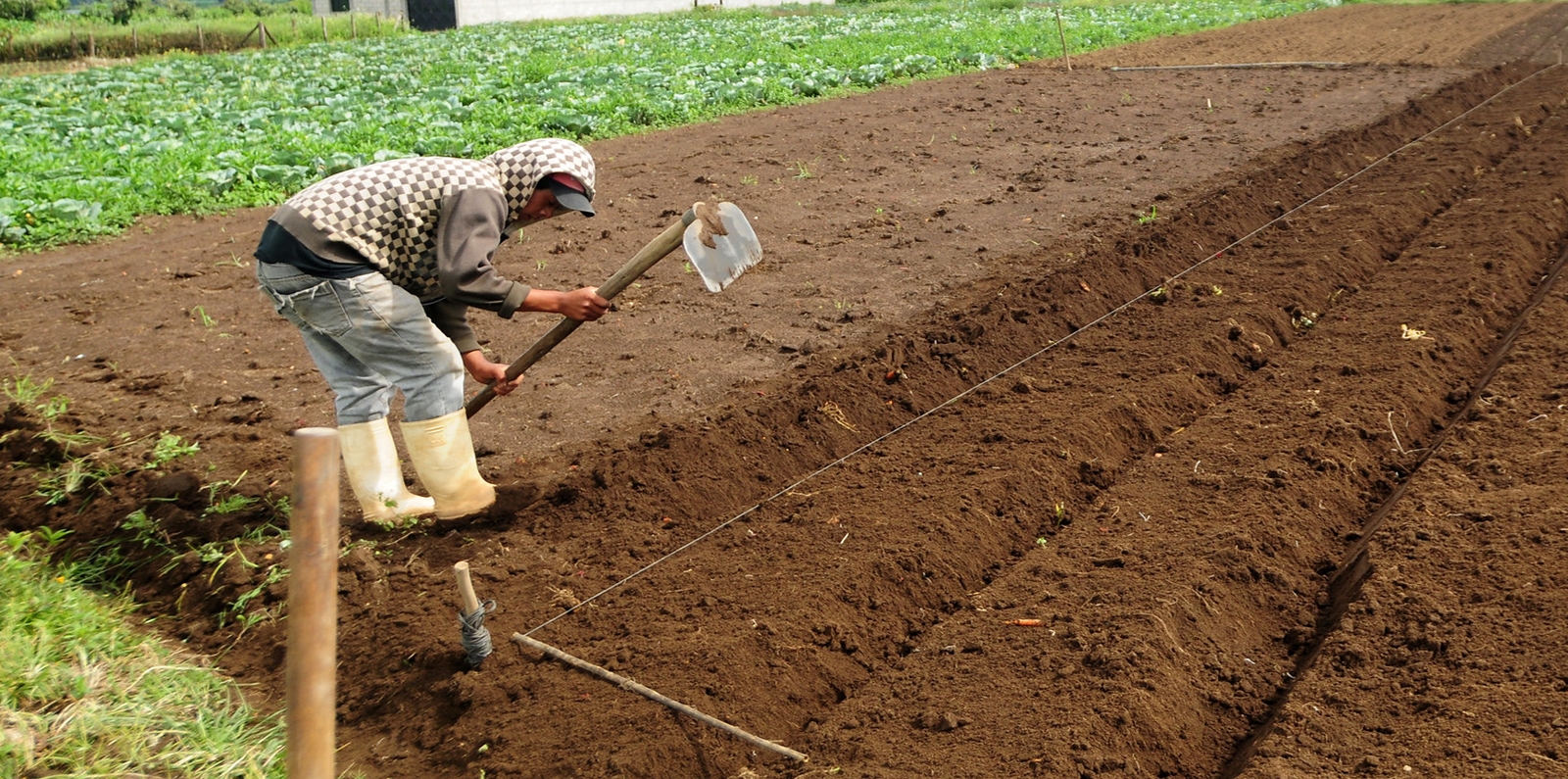About the Project
Nearly 40 percent of Honduras’ 9.2 million people work in the agricultural sector and smallholders make up some 70 percent of the agricultural community, farming low-profit crops such as bananas, plantains, rice, maize, and beans. Land reforms in the country have left land ownership largely unconcentrated and so unlike neighboring Guatemala, most of the country’s land is in the hands of smallholders who farm on less than a hectare of land.
But reaching these small-scale farmers—about two million people— has been a challenge. Just 45 percent of the population in Honduras has a bank account, one of the lowest levels of financial inclusion in the region, according to the 2017 Global Findex. In rural areas, the situation is even more complicated: Farmers lack the collateral and financial literacy needed to access credit and interact with the formal banking system. Banks, meanwhile, see the smallholder space as too risky.
Across Honduras, drought, climate change, and plummeting coffee prices have also left agricultural workers reeling. Many small farmers have few options in the weeks before planting season begins: The can borrow money from neighbors or relatives to cover seed and fertilizer costs, with the hopes of repaying the loan after harvesting. But more often, smallholders are at the mercy of commercial intermediaries, who charge sky-high interest rates that lock farmers into a financial spiral that, by all accounts, is difficult to escape.
With support from the Private Sector Window of GAFSP, IFC recently launched a partnership with the Cadelga Group, one of the largest distributors of agricultural products and services in Honduras. The advisory services project has enabled Cadelga to create a new department, AgroMoney, which provides loans to smallholders in the form of fertilizer, seeds, and irrigation technology. As part of the program—the first microcredit package of its kind in Central America— farmers receive inputs, as well as training, and later repay the loans with competitive interest rates similar to what they’d receive in the formal banking sector.
The AgroMoney pilot, launched in March 2019 in the Santa Barbara region and rolled out to the Comayagua region in August 2019, has provided 664 loans to smallholder farmers totaling some US $1 million. As part of the program, smallholder farmers get a credit line approved, but they only pay interest on the amounts they’ve used—which keeps costs low. The project aims to reach more than 4,400 farmers by 2021, with plans to expand throughout Honduras in the coming years. As part of the loan, farmers also receive training in crop diversification and upgraded irrigation techniques, which helps offset the effects of drought.
IFC is also working with Cadelga to strengthen its network of retailers—nearly 30 stores in the two pilot regions, many of which are family-owned and lack the managerial and customer service skills to grow their business. The project assesses the retailers’ needs and provides training and coaching alongside timely advice on best agricultural practices—all of which helps ensure that these small businesses can serve rural communities. Through this work, Cadelga is helping build a more efficient, inclusive and sustainable distribution network in Honduras to reach more smallholder farmers.
Country
- Honduras
Project Status
ActiveFunding
Private Sector-led projectSupervising entity
- IFC
Contact
Mr. Niraj H. Shah
Principal Investment Officer
Program Manager, GAFSP Private Sector Window
nshah1@ifc.org
Washington, DC
Tel: 202 473 3743
News
- Microfinance Yields Better Futures for Honduran Farmers
- Supporting Smallholders During Crises in Honduras
- 'You wait, but nothing comes:' Honduran farmers at the mercy of climate-change-…
- Honduran Farmers See a Window of Opportunity for Growth
- The Climate is Warming Up, So Farmers Are Adapting: 5 Ways We Support Them to W…
- In Honduras, COVID-19 is Taking a Toll on Smallholder Farmers
- En Honduras, COVID-19 está afectando a los pequeños agricultores
